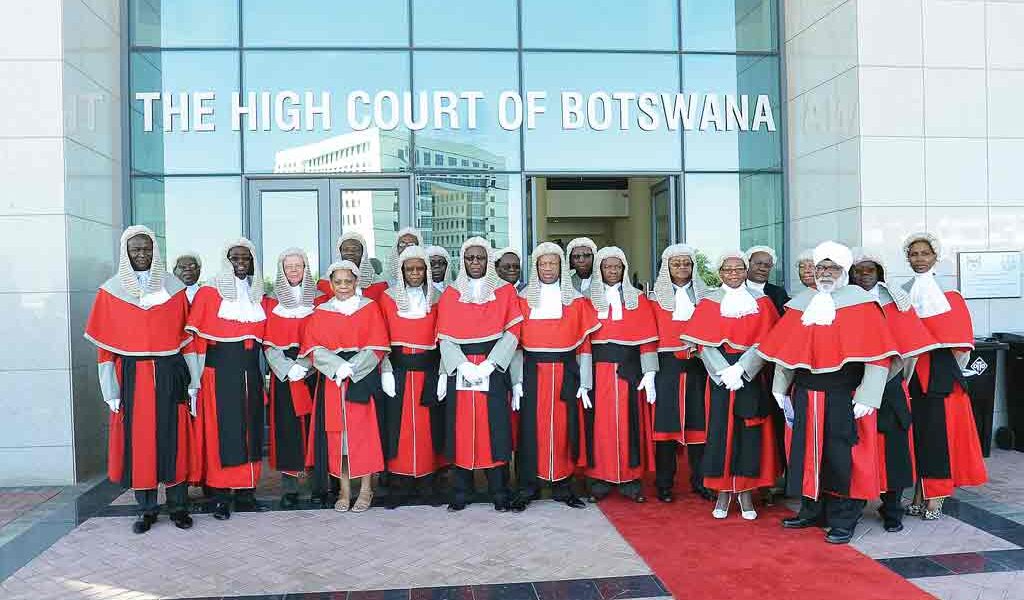- Granting bail to offenders causes consternation
- Yet bail is a part of the criminal justice system
SESUPO RANTSIMAKO
FRANCISTOWN: Batswana have lost trust in their judicial system because it continuously grants bail to serious crime offenders, the head of the Directorate on Corruption and Economic Crimes (DCEC), Brigadier Joseph Mathambo, has said.
Speaking at a conference styled Bail Pitso that was held in Francistown recently, Mathambo said matters that sparked a public outcry for offenders being granted bail were the Molepolole triple murder case, BDF private Thebe Ndjavera who murdered his two toddlers, the Thabo Masilo murder case, and the case of former police officer Atlholang Mojanki who allegedly killed his ex-girlfriend.
In 2018, a tragedy occurred at the Ramantosha family of Ntloelengwae ward at Molepolole in which a husband, wife and their son (Patrick Ramantosha 55, Fridah Ramantosha 47 and Keabetswe Ramantosha 22) were found murdered. Suspects, including the only remaining son of the deceased, 27-year-old Tebogo Ramantosha, his co-accused Mmoloki Boniface Tlhaelo (37), Pololko Segwagwa (27) and Cornelious Saidoo (38) were at some point given bail.
Further, in 2013, Ndjavera killed his two young children aged two and four at Somerset East location. Neighbours found the children in a pool of blood after the then member of the Botswana Defence Force killed them. While he was found guilty in 2016, the Judge then said he was mentally unsound at the time of committing the offense.
In December last year Justice Abednego Tafa found Thabo Masilo guilty of the 2012 murder of Tshepang Motlhabane, who had just completed her form 5 at St. Joseph’s College. At one point Masilo was given bail.
The public was left wondering whether the judiciary was protecting serious crime offenders. “It is no longer an outcry but an outrage because the public feels disappointed by the judiciary,” Mathambo noted. “Our dream as a nation is to have a judiciary that is responsive.”
Addressing the same conference, Kgosi Thabo Maruje Masunga said it was becoming difficult to understand what the judiciary stood for. The Director of Public Prosecutions, Stephen Tiroyakgosi, said while bail was a fundamental aspect of the criminal justice system, the community was hard pressed to understand how alleged robbers, rapists and murderers could be unleashed on it by the courts.
He noted that bail was granted even as members of the public attend the proceedings and show their anger upon the first appearances of dangerous criminals. “Unfortunately these messages play no role in swaying the mind of the presiding (judicial) officer who is burdened with deciding whether or not to grant bail to the accused,” Tiroyakgosi observed. “The public has to understand that the principles which guide the court in considering an application for bail are basically the presumption that an accused is innocent until proven guilty and the likelihood of him absconding if granted bail.”
He noted that principles of bail application that were considered have been advanced in the celebrated case of Magosi vs. the State. These included the nature of the charge, the character of the applicant and the strength of prosecution’s case. He added that Section 3 of the constitution provides that whereas every person in Botswana is entitled to the fundamental rights and freedoms of the individual, nothing contained in or done under the authority of any law shall be held to be inconsistent with or in contravention of this section to the extent that the law in question authorises the infliction of any description of punishment that was lawful in the country immediately before the coming into operation of this constitution.
The conference learnt that the Criminal Procedure and Evidence Act regulates the criminal justice system in Botswana. Generally, the law provides for instances when a person suspected of having committed an offence or charged with an offence may be remanded in custody or released on bail such that everyone who is arrested for allegedly committing an offence has the right to be released from detention if the interests of justice permit but subject to reasonable conditions.
The DPP continued: “The courts do not take a passive approach when determining whether an accused should be released on bail. The courts exercise their discretion by balancing the interests of society, the accused and justice as enshrined in the constitution. The courts are not interested in whether or not the accused is guilty of the alleged offence because that determination is left to the trial.”
Tiroyakgosi’s deputy, Wesson Manchwe, said the starting point of the contentious bail issue is Section 3(a) of the constitution which guarantees every person the right to life, liberty, security of the person and protection of the law and the public interest. The public concerns over granting bail to offenders, according to Manchwe, manifests itself through castigating and lambasting the DPP and the judiciary. “It seems from the public’s point of view that people who have been charged with committing serious offences should not be granted bail,” said Manchwe. “This outcry bothers us as DPP since it has a bearing on public confidence in us as an institution and indeed in the criminal justice system.”




